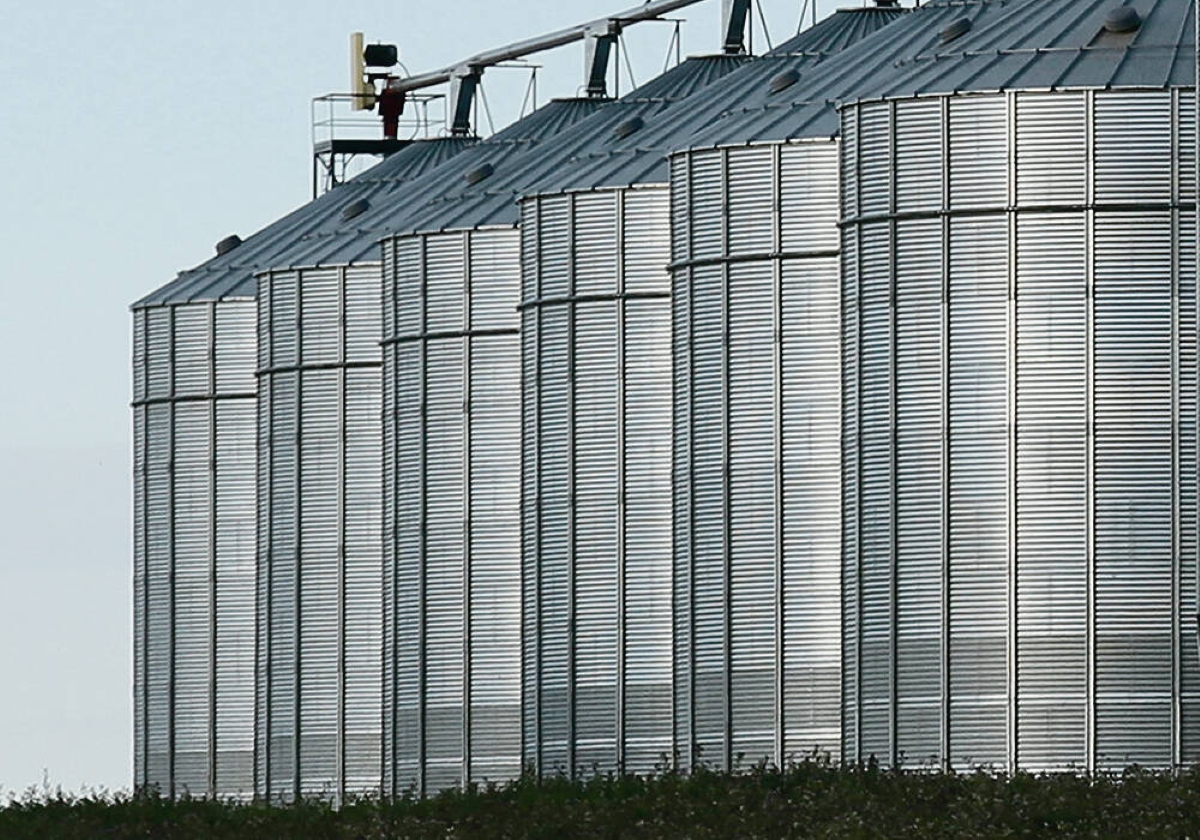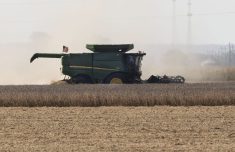Growers and provincial agriculture specialists suspect that glyphosate resistant kochia has arrived in Manitoba.
After applying glyphosate this year, several soybean growers found that the herbicide did not kill kochia plants in their fields. They alerted provincial employees, including Dennis Lange, a Manitoba Agriculture crop production adviser in Altona.
Lange, who spoke at a field tour in Melita, Man., July 30, said it hasn’t been scientifically proven that the weeds are glyphosate resistant, but it is highly likely that tests will confirm the suspicions.
Nasir Shaikh, a Manitoba Agriculture weed specialist, said he spoke to Lange about one case of potential glyphosate resistance.
Read Also

Grain trader Bunge lowers 2025 profit forecast after closing Viterra deal
U.S. grain trader and processor Bunge on Wednesday lowered its 2025 earnings forecast following its merger with Viterra, and said it is overhauling segment and volume reporting to align with its integrated operations.
“A couple of other growers (also) called me and they also suspect they might have glyphosate resistant kochia,” Shaikh said.
“I do have plans to collect the plant material from them over the fall and send it to the lab.”
If the tests come back positive, all three prairie provinces would now have confirmed cases of glyphosate resistant kochia.
Scientists detected resistant kochia in southern Alberta in 2011, and last year resistant populations were found around Swift Current, Sask.
Agriculture Canada estimates that herbicide resistant kochia is present on 8,000 acres of cropland in Western Canada.
However, Stratus Agri-Marketing surveyed Canadian farmers earlier this year about herbicide resistance and found that there might be 651,000 acres of glyphosate resistant kochia on the Prairies.
Shaikh didn’t disclose the locations of the suspected cases, but he said it’s not surprising that glyphosate resistant kochia exists in the province.
“It’s just a matter of time that we’ll (officially) document it in Manitoba.”
Shaikh and Hugh Beckie, a herbicide resistance specialist with Agriculture Canada, will conduct a weed survey in late August and September to assess the presence of glyphosate resistant kochia in Manitoba and Saskatchewan.
Beckie agreed the appearance of glyphosate resistant kochia in the province isn’t shocking, seeing how the weed is abundant in southwestern Manitoba.
During his presentation at the Westman Agricultural Diversification Organization field day, Lange said glyphosate resistant kochia in soybean fields might be connected to agronomic practices.
More producers are now growing soybeans back to back because of they are profitable and easy to grow. Lange said the practice may be tempting, but it isn’t sustainable over the long run.
“That’s a question I get from a lot of new growers: ‘I had soybeans last year, can I plant soybeans again this year?’ ” said Lange, the province’s unofficial soybean specialist.
“Yeah, you can plant it (again), but it does start you off on the wrong foot.”
Shaikh said crop rotations are an effective way to mitigate the spread of glyphosate resistant weeds, but certain rotations exacerbate the selection pressure and likelihood of genetic mutations.
“If a grower is planting Roundup Ready corn, then going Roundup Ready soybeans and Roundup Ready canola, he is rotating the crops but the base herbicide is still the same.”
Instead, growers need to develop a long-term, integrated weed management strategy. Shaikh said the strategy should include crop rotation, tank mixing of herbicides and using proven but older chemistries.
“These (older) herbicides are very effective and can be applied even in the fall and incorporated into the soil,” Shaikh said.
“And in the spring, (producers) can have a clean field to start with.”

















